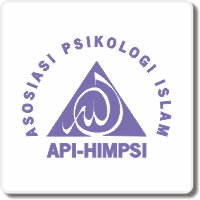HEGEMONIC MASCULINITY: Wacana Relasi Gender dalam Tinjauan Psikologi Sosial
DOI:
https://doi.org/10.32923/psc.v1i1.867Keywords:
patriarchal structure, gender, hegemonic masculinity, Critical Men Studies (CSM), psychology of genderAbstract
Today, the world is languishing in a patriarchal structure. This patriarchal domination not only harms women, but also men, children, the elderly, and marginalized groups. Gender mainstreaming extends its studies not only to femininity but to parenting (motherhood and fatherhood), early childhood. In addition, gender also extends to the realm of masculinity or male studies. In this case, the psychology of gender underlines this phenomenon with hegemonic masculinity discourse. Masculinity is seen from the dominance of the spaces of life both public and private. This paper examines the ideology of hegemonic masculinity as the most desirable theoretical response to Critical Men Studies (CSM). This elaboration of the Hegemonic Masculinity concept is useful as a 'binocular tool' that is operational for empirical studies of masculinity.
Downloads
Published
Issue
Section
License
Copyright Notice
The Psychosophia: Journal of Psychology, Religion, and Humanity is under the Creative Commons Attribution 4.0 International (CC-BY 4.0) License, according to which:
1) Authors retain copyright and grant the journal the right to first publication, with the work simultaneously licensed under the Creative Commons Attribution (CC-BY 4.0) that allows the sharing of articles published with the acknowledgment of authorship and the initial publication in this journal.
2) The authors are authorized to make additional contracts separately for distribution of the version of the work published in this journal (for example, publication in an institutional repository or as a chapter of the book), as long as there is recognition of authorship and initial publication in this journal.
3) Authors are authorized and encouraged to publish and distribute their work online (for example, in institutional repositories or on their personal pages) at any time before or during the editorial process, as it increases the impact and reference of the published work.






